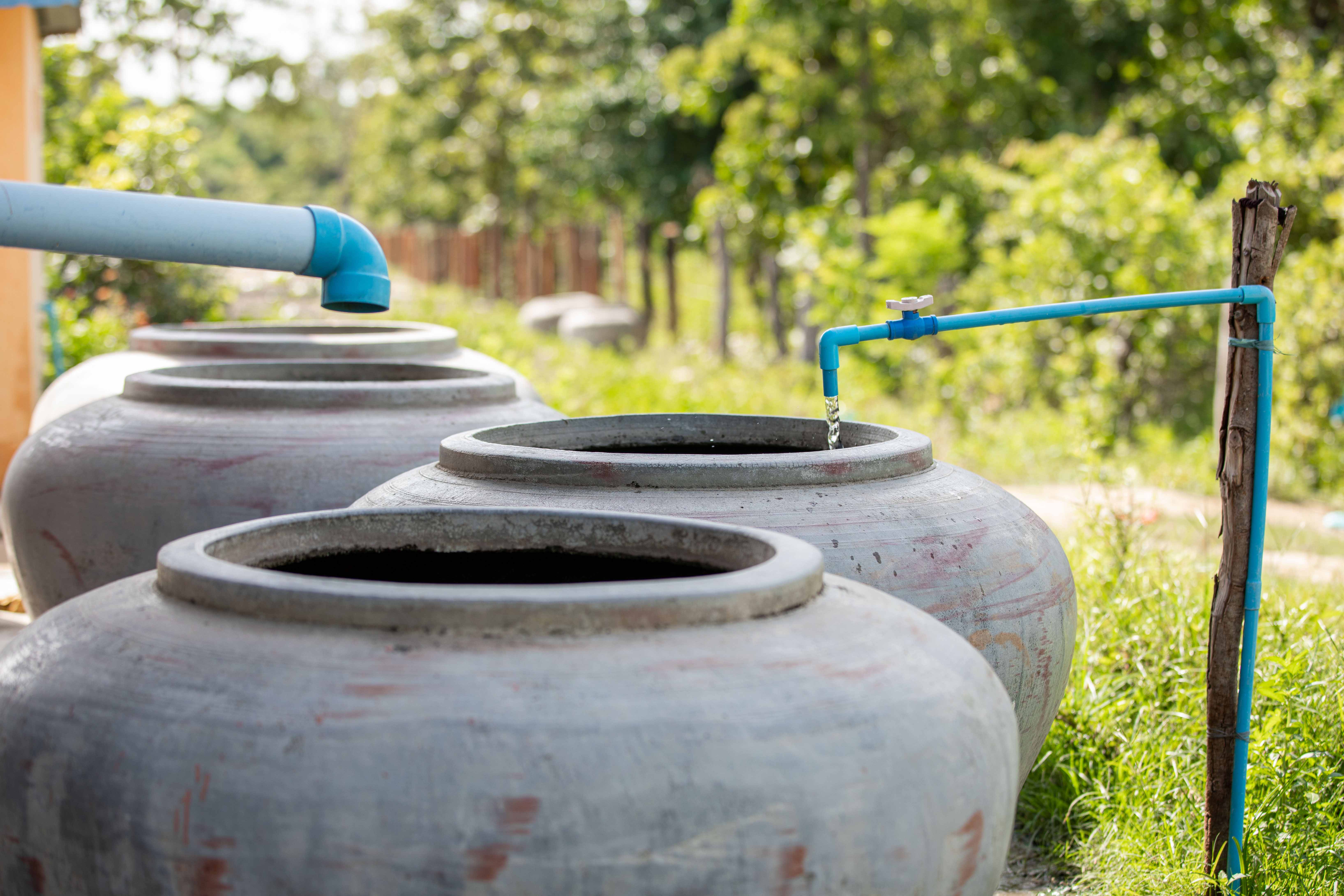Chhay Nang faced extreme water shortages each year that threatened her agricultural-based livelihood. With the support of the Collaborative Management for Watershed and Ecosystem Service Protection and Rehabilitation (CoWES) project activities in her village, her family now has access to clean water throughout the year. These first drops of water have had far-reaching impact for Chhay Nang and her family.
Chhay Nang is a mother, a farmer, and a traditional wine producer in Kampong Speu’s remote Tangbampong village. ©️Manuth Buth - UNDP Cambodia
Chhay Nang is a mother, a farmer, and a traditional wine producer in Kampong Speu’s remote Tangbampong village. Together with her husband she runs a small grocery store where she sells papayas, mangoes, coconuts and custard apples grown around their home. Her family’s income, however, faces a constant threat from water shortages.
The growth of Chhay Nang’s fruit trees depends on the amount of rain during Cambodia’s wet season from May through October each year. She collects water on her roof in containers and buys any additional water from sellers. During the dry season, her family needs to purchase 500L of water to last several days, costing $15 USD per month.
In 2019, the Collaborative Management for Watershed and Ecosystem Service Protection and Rehabilitation (CoWES) project, supported by the Global Environment Facility, the Ministry of Agriculture, Forestry and Fisheries, and UNDP, recognized the threat of water shortages to agroforestry in Tangbampong. Under the project’s on-farm soil conservation and agroforestry work, CoWES supported the community’s installation of a pipe to connect a clean water supply to the village. The water source was located 9.5km from the village, in the upper part of the mountains of Aural district.
96 families in the village now have access to a direct water supply at home. ©️Manuth Buth - UNDP Cambodia
Chhay Nang’s husband was one of the village’s volunteers on the water committee. “My husband could not sleep at night when he saw the pipe brought to the village,” she shares. “He said it was like a dream. He never had water like this since he was born.”
With newfound access to water, Chhay Nang’s family plans to plant more fruit trees and vegetables around their compound, and to build a new latrine. She will save $10-12 USD each month for her children’s education as a result of her savings on water alone. Chhay Nang recognizes the opportunity of a clean water source to not only improve her small business and the livelihoods and health of her family, but those of the entire community of Tangbampong village.
Mrs. Chhay Nang and her Husband. ©️Manuth Buth - UNDP Cambodia

 Locations
Locations







